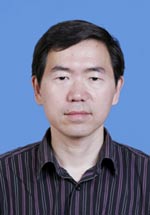 |
| 张明权 |
中国富豪近年移民海外成风,很多国家大幅提高移民门槛也无法阻拦移民潮。即使加拿大政府将每年移民配额都给中国,仅北京香港两地的申请,也需要13年半才能"清空存货"。
参考译文:
60% Chinese riches keen on immigration for a change
Traditionally, an average Chinese holds the idea that poverty gives rise to the desire for change. The poor are keen on change while the rich content with things as they are. However, in today’s China riches are altering the status quo in a manner peculiar to them. In 2011, the number of Chinese people each with more than RMB 10 million worth of assets scales up to 590,000, among whom 60% polled have completed or are considering investment immigration. Furthermore, more than 74% polled of Chinese entrepreneurs each with more than RMB 100 million worth of investable assets follow suit.
Immigration has become the order of the day for Chinese millionaires in recent years. This tidal wave of Chinese immigrants has never been frustrated by the ever more stringent limitations imposed on it by related countries. Even if Canada, for example, gave all its immigration quotas to Chinese, still it would take 13 and a half years to "clear off" arrears of application from Beijing and Hong Kong alone.
参与本译题翻译较好的网友有:sumingyu, voiceofsilence, rain_046等,翻译是一件苦差事,有些网友的翻译在部分用词和句式上也很出彩,但在其他一些地方却存在部分低级错误,如果从考试和翻译实践的角度来看,就很吃亏。这个问题我在前面的点评中也多次提到,我们这里再次指出几个基础语法与词汇方面的问题:
1) 错误:among 60% of whom will has been applied for
正确:among whom 60% have applied for
2) 错误:The poor is the major power to make change
正确:The poor are the leading force to make change
3) 错误:It is estimated that the rich with 10 million yuan will increase to 590,000 in China
正确:It is estimated that the number of rich people each with 10 million Yuan will increase to 590,000 in China
汉译英常常需要注意的问题是,受中国人思维模式的影响,汉语的表述往往不遵守形式逻辑,一些表述(看似)前后矛盾,中国人习惯上可以理解,但英语读者未必也一样能够理解,这不是低估英语读者的智商,而是表达习惯的问题。在信息处理上,汉英语言存在显/隐方面的差异,因此在汉译英时正确处理汉语的语境隐含信息十分重要。
本文中存在前后矛盾的信息,比如上文说“6成富人考虑移民”,下文是“60%的富人已经完成或正在考虑投资移民”;这两处比例是相同的,但所包含的人不同,这就是汉语表达不够精确的地方,在翻译时译者需要做变通处理,所以我把标题译成60% Chinese riches keen on immigration for a change,而不是简单的plan to migrate for a change。汉语中的隐含信息经常需要明确译出来,比如“增至59万人,其中60%的富人”,汉语没有交代清楚(可能在上文有交代,这里没有)是接受调查的一部分人,而不是全体的59万人,如果翻译不交代清楚,很容易产生样本比例代替总体比例的错误。
至于词汇翻译,“求变心切”用keen on…for a change可以体现出来,有网友翻译成seeking for quick changes,不是很地道,再者汉语标题中的两部分内容往往构成互文文本,在翻译时应根据英语标题的习惯,采取整合翻译,因为英语很少用这种松散、意合的句式。“穷则思变”是成语,可以吸收前人(词典)的翻译:Poverty gives rise to the desire for change,也可以自己创造性翻译,比如poverty leads to reforms,但翻译成poverty leads to prosperity不是很妥当。“成风”,词典翻译成:become the common practice,become the order of the day,基本上是可以直接用的,或者简单一些:immigration has enthralled the Chinese millionaires。“移民潮”和“清空存货”都涉及隐喻,前者比较简单,因为immigration wave也是英语中通用的表达方式,第二个比喻中的意象是否要保留,可以根据自己的喜好选择决定,webweb翻译成empty the stock of applicants就意图保留原文的意象,但有把申请人比喻成存货的感觉,applicants如果换成application就会好一些。
参考译文:
"Less money" makes a better child
The reporter randomly interviewed parents on the high-consumption mentality of their children. Zhang Jun who has a daughter dismissed the question as meaningless. He said his daughter is freshman in high school and a dress of hers costs RMB 2,700. He added that as long as his family can afford the consumption, there is nothing so "high".
Liu Bing holds a different view. He said, "If you have more money, you give more of it to your child; if you don't, okay, you give less. However, moderate consumption will benefit your child. Children should be taught to spend less money, to save some if possible, and this will help them form a good habit of moderate consumption in the future."
这里的标题看起来很简单,但翻译起来却有点难。所谓的“穷养”,是中国人抚养孩子的观念,中国文化强调“养儿防老”,父母养育子女,子女赡养父母,然而在英美国家,父母养育子女是一种义务,子女却不需要赡养父母,因此在养育孩子的观念上有所不同,比较强调孩子的独立性,即使家里很有钱,也鼓励孩子自己赚取零花钱,这也影响到翻译时对一些词汇的选择,我们把英语中表示“抚养、养育”的一些词找出来,比如raising, upbringing, nursing等,加上“穷”这个词的英译“poor”,都很难准确地表达出汉语“穷养”的意思。zhouzihang的翻译是:Raising child in (an) appropriate frugal way matters,比较准确,但不够简洁。
这一译题翻译的第二个问题是如何试图模仿家长说话的语气,我在做参考译文时注意了这方面的问题,但可能还不够好,比如:There is nothing so "high". If you have more money, you give more of it to your child; if you don't, okay, you give less. 等处都尽量做到用词简单,以便符合口头接受采访时的说话方式。
(本次点评的参考译文中的RMB都没有折算成美元,一方面我有点懒,另一方面因为现在差不多轮到美元折算成人民币的时代了吧。)
参考译文:
Dare we the employees dine out?
When we were young, we had three meals at home. We even went home after school for lunch prepared by our parents who would never miss to do so, for we had nowhere to dine but at home. As we grew up, we went dining in restaurants more frequently, forgetting completely about the festal atmosphere related to an occasional eatout. Dining-out has now been the daily routine of an employee. Restaurants bring delicacies as well as convenience, and not infrequently qualms about food safety. Seriously disturbed by "problem" foods cooked in a restaurant, we really wish to have our meals at home again like we did in our childhood.
百度百科对上班族的解释是:regular 9-to-5’er 指的是受雇于企业的受薪阶级人士,也泛指出社会工作并尚未退休的在职工作者。较狭义的认定则是指穿西装、套装,在办公室内工作的中产人士,此方面也称为白领阶级;广义则可以指在大都会里任何进行通勤的在职人士,例如教师、文员或甚至是劳工都可以是上班族。
从上述解释可以看出,汉语“上班族”至少对应着英语中这样几个单词:
1)工薪族(regular 9-to-5’er或 salaried man;
2)employees, in-service staff;
3) white collars;
4) commuters(including teachers, office workers, clerks, and even laborers).
这里没有明确的界定,所以可以采取最广泛的定义来翻译,也就是employees。
至于“下馆子”,是相对于“在家吃饭”而言的,通常翻译成dine out,名词形式是dineout。现在食品安全问题很让人担心,对于上班族而言更加可怕,所以才有标题Dare we the employees dine out?有不少网友翻译标题时用了worried一次,语气显得太轻。
这篇文字翻译起来整体感觉不难,不过还是需要注意一些隐含信息的翻译,比如“在家吃饭是一种必然”说的是改革开放之前或之初,餐饮服务业不发达,而且经济条件不允许,所以只能回家做饭吃。因此也就有了所谓的“过节式的享受”,这种享受多了,自然也就不稀罕了,所以这里翻译需要稍微补充一些信息,以便说清楚过去和现在的感受差异,我加了forget about这样的说法。baiyixia163的理解和翻译基本上是对的:Eating in the restaurant is no longer an occasional enjoyment for festivals, but an essential routine for office workers. 但occasional enjoyment for festivals是过节的享受,原文说的是“节日式享受”,这里的错误与对隐含信息的理解不充分有关系,在过去中国人过节是不下馆子的,只有现在的人才会在过节的时候下馆子。
本文仅代表作者本人观点,与本网立场无关。欢迎大家讨论学术问题,尊重他人,禁止人身攻击和发布一切违反国家现行法律法规的内容。
更多文章
专家简介:
张明权,安徽省固镇县人,江苏大学外国语学院副教授,英语语言文学硕士,上外博士课程班进修。主要从事英语语言学和翻译学研究,在国内外学术期刊发表论文10余篇,出版译著两部,发表其他文章20余篇,有大量翻译实践经验,翻译总字数接近200万。Email: mqzhang@ujs.edu.cn。
(作者:张明权 中国日报网英语点津 编辑:Julie)